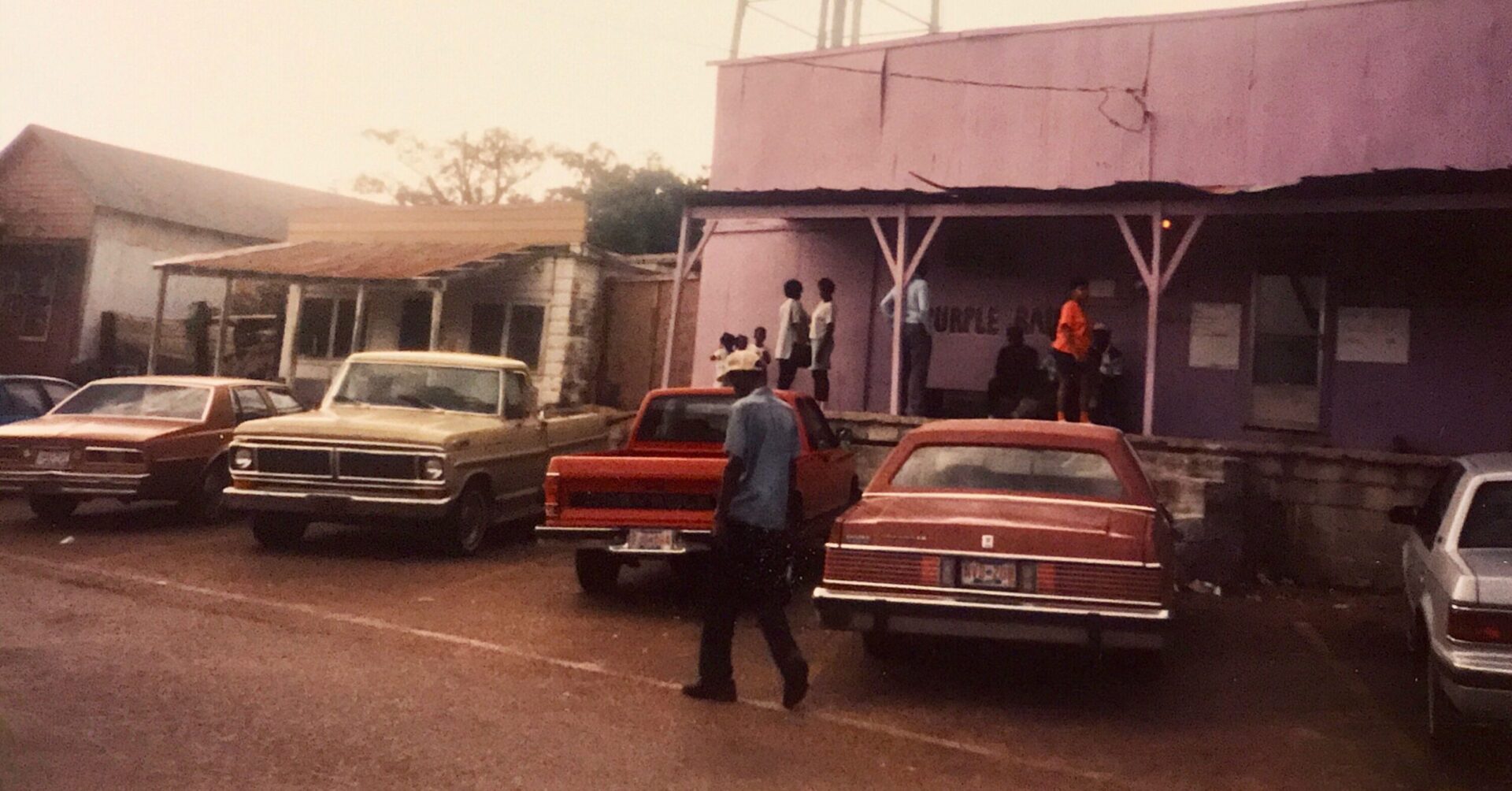Al Kapone f/ 211, Kingpin Skinny Pimp & SMK “Down Muthafuckas” (1992, Alcatraz Productions)
The story of of Alphonso Bailey, better known as Al Kapone (and prior to that, Ska-face Al Kapone), is in many ways the story of the rise of Memphis rap music over the past two decades.
Fittingly, Kapone’s career began at what has been defined as the “big bang” moment of Memphis rap: the release of Radical T’s Radical But Critical, the first record from the bubbling scene to be distributed nationally, in 1991. Kapone, credited as “MC AL”, appeared on the opening track entitled “Two Rapping Young Brothers”, his pitched drawl evoking a southern Eazy E. (The record would also launch the career of Eightball, as well.)
The following year, Kapone broke out on his own, easily settling into the uncompromising rhyme style popularized by his contemporaries from Compton, on Street Knowledge Ch: 1-12. The LP, powered by a decidedly g-funk sound and gangsta rhymes, was characteristic of underground rap beyond New York City at the time. However, it also possessed a weirdness beyond its rebellious spirit, exemplified both in sample choices by SMK — the distorted electric guitar stabs in “For Ya Bad Ass Kids” is more Def Jam than Ruthless, while “Down Muthafuckas” features a disembodied, new wave-y voice for the chorus — and in the bizarrely sentimental “Concerto For A Dead Brother”, a 0:53 instrumental played on a harpischord, which closes the record.
In 1994, Kapone put out two full-lengths, one on his own Outlaw Records, entitled Pure Ghetto Anger, and another on the independent Basix Music, who also put out records by Kingpin Skinny Pimp and The Barkays, entitled Sinista Funk. Both records were well cut g-funk, heavy on the low-end bounce and lyrical aggression, but standout due to Capone’s smooth hustler ethos and early “buck” tendencies, such as on Ghetto Anger’s ”Round After Round”.
Sometime after the release of 1995’s Da Resurrection, Kapone signed a deal with Gangsta Pat’s legendary On The Strength Records, but his career seemed to stall. However, in 1997 Kapone was contacted by E-40 to contribute a track to the compilation he was working on with B-Legit, called Southwest Riders, and the seeds of a friendship, and later, business relationship, were sown.
“Ain’t Fuckin’ Around” appeared on the compilation credited to “Ska-face Al Kapone” (a moniker he later dropped due to confusion with Scarface of the Geto Boys), and Kapone headed out West to produce his Memphis To The Bombed Out Bay compilation, that was released in 1998 on his own Alcatraz Dope Muzik label. The compilation fused Kapone’s long-standing affinity for g-rap with the source material, and featured appearances from Cellski and DJ Squeeky. After the release of his compilation, Kapone crossed paths with 40 again, hooking up with the Vallejo artist’s Sick Wid It camp, and preparing his first solo record in close to 5 years, Goin All Out. According to Kapone, the record was completed in 1999, but dealings with Def Jam (which ultimately proved fruitless) delayed the record’s release until 2002*.
During the ensuing years, Kapone returned to his independent roots, pushing his own talent, the Alcatraz Ridaz, and a series of mixtapes called Memphis Drama. He also hooked up with Kingpin Skinny Pimp and The Jerk for Memphis Untouchables in 2003. However, it was until two years later, in 2005, when mainstream success found Al Kapone.
At the time, Craig Brewer, a filmmaker and director, was developing a movie that focused on the life of a Memphis hustler trying to build a career in rap music (seemingly in response to the surge in popularity of southern rap music among the mainstream rap audience). Brewer attempted to reach out to DJ Paul to have him contribute the lead single to the “Hustle & Flow” soundtrack, but instead mistakenly ended up talking to Kapone, who he confused for the Three 6 producer. Upon learning of the mistake, Brewer asked Kapone to submit tracks for the score, anyway, and three of Kapone’s records make the cut, including the film’s buck anthem, “Whoop That Trick”.
The massive popularity of the film and its soundtrack opened new doors for Kapone, including a writing partnership with Lil Jon that resulted in “Snap Yo Fingers” as well as appearances on E-40’s first post-Jive record, My Ghetto Report Card, and the soundtrack to Brewer’s next film, “Black Snake Moan”.
Following (and often driving) the trajectory of the Memphis underground, Kapone began with a relentless work ethic, and word-of-mouth, trunk-to-trunk distribution, before elbowing his way into the spotlight. From the inflection point of Radical But Critical, through cassette culture, and onto chart success and silverscreen immortality, the tale of Memphis rap simply can’t be told without Al Kapone, and very likely, would look quite different without him.
-SM
*During this negotiation period, Kapone did contribute a verse to the track “Doin’ The Fool” on 40’s Loyalty and Betrayal.
(Source: http://www.youtube.com/)
